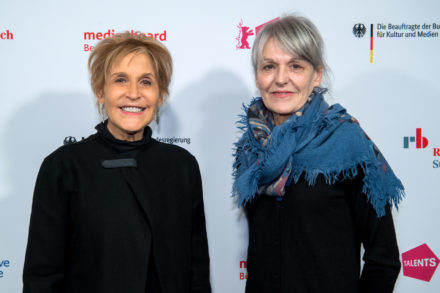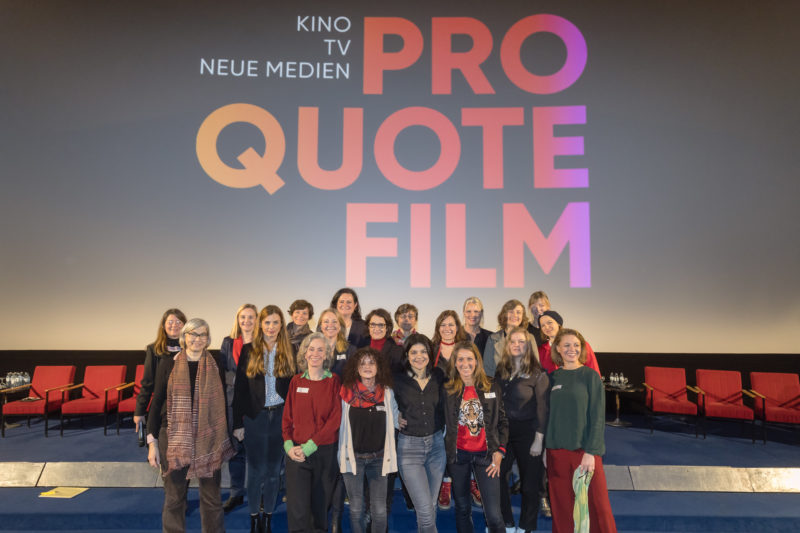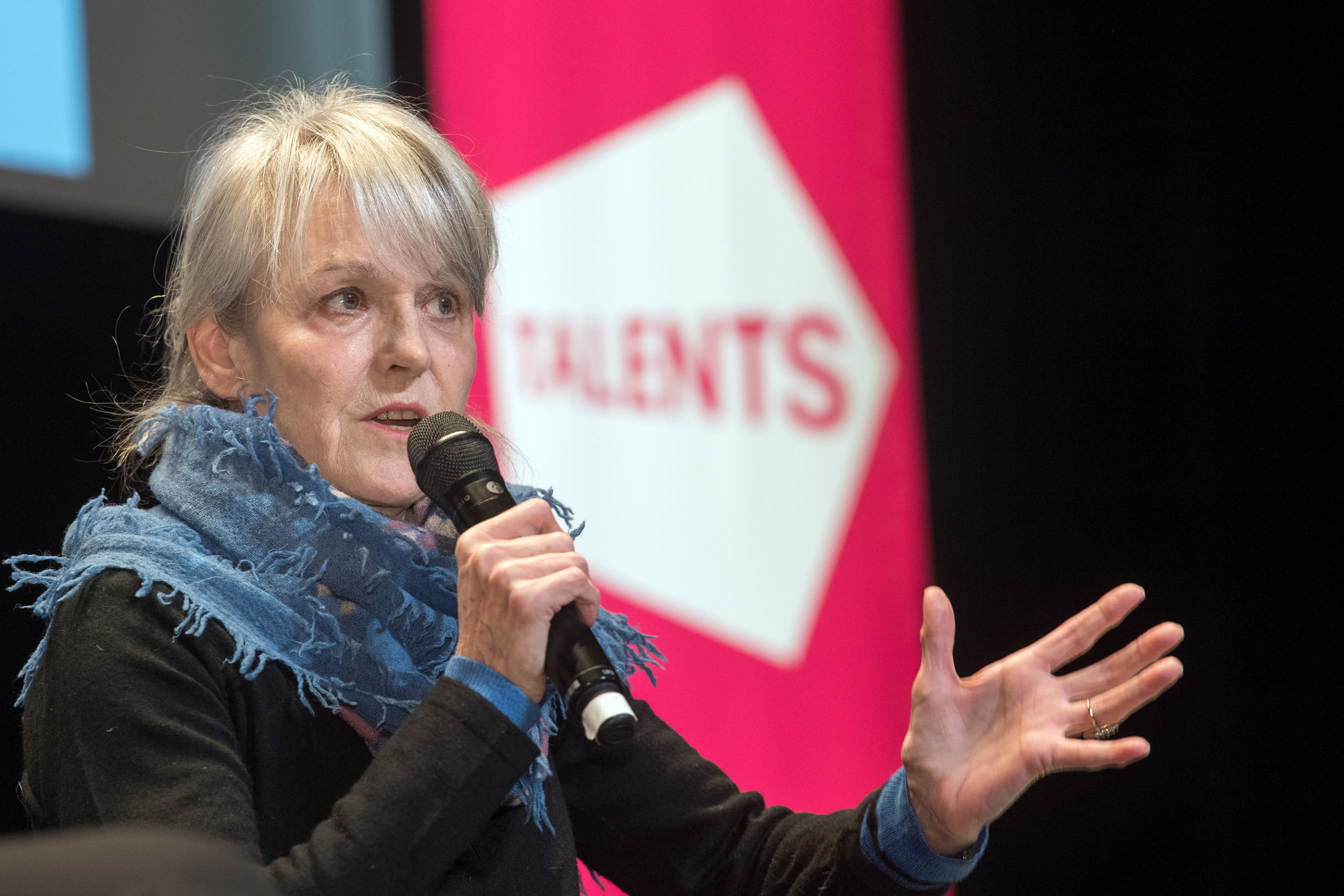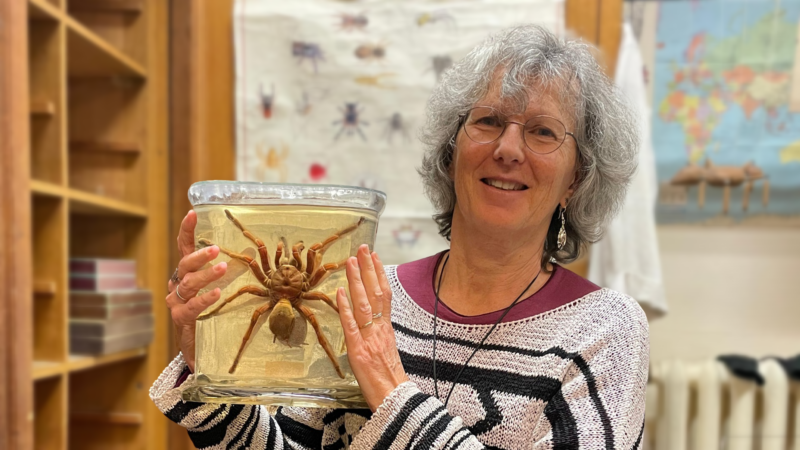Film and television shape our worldview. However, the stories and pictures are often loaded with stereotypes. Recent studies show that women in movies have little say in their own profession. In Germany, a new initiative is emerging that aims for more equality and a 50 percent quota in all German film industries.
By Helen Hecker, Berlin
It was as if a fuse had been lit, one that will not be easy to extinguish. The debate surrounding the role of women in the film industry is a firestorm and participants are pushing for societal change. The demands for equality for women in front of and behind the camera finally have an attentive audience since the turbulent #metoo reporting as well as the debates and discussions at the 2018 Berlinale. Not only that, but also such examples including the Romanian director Adina Pintilie being awarded the Golden Bear for her film “Touch Me Not” and Rachel Morrison receiving an Oscar nomination for “Best Camera” – the first of its kind to be awarded to a woman – have fueled the conversation.
“I have been described as the ‘female cameraman’ more times than I count. I myself have taken the word cameraman out of my vocabulary,” says Nancy Schreiber at the Berlinale Talents event “Technically a Woman”. The 69-year-old camerawoman, or cinematographer as she prefers, is considered one of the pioneers in American pictorial design for cinema. Schreiber was speaking with her French colleague Agnés Godard about her experiences as a woman in the film industry. Godard also recalls the time when she received the “best female cinematographer” award 20 years ago in Italy. “Instead of defining, who does the job, there needs to more focus on what kind of job you do,” says the camerawoman, who worked together with Wim Wenders and Claire Denis. “I do believe that we are much further today than we were a few years ago.”

Both women have campaigned for the equal opportunity for women in film for years. “In the American film schools, around 50 percent that study cinematography are women, while only 4 percent worldwide work in the field. That is ridiculous,” states Schreiber. According to her, the problem above all else is that only a few women actually get contracts after their studies. Most women find themselves working on independent films if they manage to find work. “Everything boils down to power and money. Hollywood especially protects the old, male system,” says Schreiber. When she was a young lighting technician, she often dressed herself in baggy clothes and refused to wear make-up. “I thought that looking this way would lead to fewer complications and comments from men. Nowadays I know that I had a complex and that I wasn’t alone with that feeling.”
Camerawomen are not the only ones who have it hard. The organization “Women in Film” showed that out of the 100 most successful Hollywood productions in 2017, only eight percent had women sitting in the director’s chair and only ten percent had written the screenplays. Germany too has sobering numbers. In the recently published study “Gender und Fernsehfilm” (gender and television film), commissioned by the Filmföderanstalt (a film support organization) FFA and ZDF, and the ARD, women make up 15 percent of the camera sector and only nine percent in film scoring, the worst scores of the study.
Female directors have slim chances in the film industry. Around 80 percent of the 1,100 analyzed movies and television films between 2011 and 2015 were produced by men. Director Barbara Rohm from the “Pro Quote Film” initiative is striving to strengthen awareness of the problem: “It is important to us that the topic isn’t broken down to cases of individual women. It must be clear that by principle, there is little equal opportunity for women in the film industry. Only one in every five films is directed by a female director and on average, women have smaller budgets and funding material available to them.”
There needs to be a quota for women in German films
In October 2017, the initiative “Pro Quote Film” was founded. The demands entailed that within the German film industry, a 50 percent quota for women in all creative key positions be instigated. In particular, public broadcasters and film promoters are called upon by the association of directors, camerawomen, scriptwriters, actresses and other trades to distribute both contracts and grants in a more balanced manner. “It is not a decision based on gender. It is much more that we will finally have the possibility to choose the best out of the men and the best out of the women. Talent is distributed evenly between genders. This is exactly why we need to give talented women a chance,” explains Rohm. “A quota first makes the competition fair and with that, the quality and diversity on screen will increase. It’s time that more women in Germany finally make our movies.”

The initiative sees the first step in a structural change in order to break through the current mold and way of thinking. “The decisive factor is that a new course is being set and the success of which can be evaluated in the future. I think along with the quota come many more possibilities. For example, in Austria there is a point system. In Sweden and Spain, they are trying to counteract discrimination with new criteria,” adds Rohm. One possible measure, for example, is an equal number of supervisory and awarding bodies in broadcasting and funding agencies, film schools and festivals. In addition, the initiative proposes mandatory gender seminars for managers and juries in debunking stereotypical patterns of perceptions when assessing projects and individuals.
History will be told through a one-sided perspective
In addition to fair distribution of contracts and funding, as well as fair pay, film makers question above all the stereotypical roles on screen. “Through the recent #metoo debate, discussions about the position of power have accrued a new significance,” says Rohm. “And it doesn’t just have to do with sex and violence. The worldview conveyed in films has an existential impact on the entire population. This is why equality is not only a woman’s topic. It is a topic for everybody.” According to her, the images in cinema and television influence our ideals and are ultimately role models for societal and cultural behavior, especially for kids and adolescents. “There is little courage to introduce new topics in films and a feminine view – history will often be told through a one-sided perspective,” the director criticized.
A study from the University of Rostock about audiovisual diversity initiated by the famous actress Maria Furtwängler came to a similar conclusion. The main critique of the study was the distorted representation of social realities. For example, when women were presented, they often appeared only in the context of their relation to their partners. Or take for instance a female chief of police chasing a murderer suspect in high heels. “It’s important to understand which image is being conveyed to which gender through the enormous power that television and cinema have. A lot has already been done in other countries in considering the portrayals of women and men in cinematic displays and on screen. Here in Germany, we hardly have enough valid figures to begin with,” justifies Furtwängler.
In 2016, just under 14 percent of television programs and 800 German-speaking movies passed the so-called “Bechdel-Test” – an international standard measuring the presence of women in film. For example, the test asks if there are more than two female protagonists, if their names are discernable, and what kind of relationship they have to each other. Only in daily soap operas were female characters over-represented, while one third of television programs didn’t even have female protagonists. What is worse, the study also found an age gap in that actresses in their mid-30s and older; their numbers are dwindling both on television and in film productions. For actresses 50 and older, there is one woman in proportion to three men.
Film therefore is anything but a reflection of social reality, says actress Jasmin Tabatabai who also joined the “Pro Quote Film” initiative. “It is completely relevant who plays the role.” In order to expand the perspective in film as well as information and education programs, more multi-faceted topics and a representation of the true societal image is absolutely necessary. That means equal opportunities for those in front of and behind the camera.











